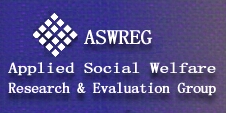My teaching philosophy is based on the principles of critical pedagogy, critical literacy, and diversity education.
i. Critical pedagogy views education as essentially political and the development of critical thinking skills is seen as central to transformative teaching and learning. In following the concept of critical pedagogues, especially as espoused by Antonio Gramsci, I believe that teachers are intellectuals engaged in creating an ¡°alternative collective will¡±. My goal in teaching is to create awareness of the political and transformative nature of education. I believe that students should be aware of their own political and personal stances and how these mediate the process of teaching and learning practices. I bring to my teaching the belief that the application of critical pedagogy concepts such as ¡°critical skills¡±, ¡°student empowerment¡±, ¡°power sharing¡±, is embedded in the ways in which teachers view the students they teach in relation to how they themselves are positioned within the broader social structures ¨C as knowing professionals, gendered and cultural practitioners. To me, therefore, teaching is a political act that involves a critical examination and negotiation of power relations. Understanding how power relations are negotiated in the classroom becomes central to teaching and learning.
¡¡
ii. In critical literacy, being literate involves the ability to read and write as well as the possession of, and engagement in a variety of discursive practices. As in critical literacy, I believe that in the learning process, students should have opportunity to acquire,
analyze, critically evaluate and apply new knowledge in their subject areas. Additionally, students should also have opportunity to examine, choose and engage in certain literacy discourses, and reflect on their practices and experiences. With teacher candidates for example, my philosophy is that it is important for them to learn a variety of strategies to use in the teaching of specific subjects as well as be able to know which strategies to use at a given time and for what reasons. That is, teacher candidates should experience different teaching methods and theories, have opportunity to examine and
analyze their teaching practices, as well as be able to explain to themselves and to others the validity and legitimacy of the use of specific teaching and learning strategies. Conversely, critical literacy espouses the didactic relationship between teachers and students: teachers teach and simultaneously learn from students and students learn from as well as teach their teachers.
iii. Diversity education is about recognizing and understanding the differences that exist in teaching and learning because of the diverse cultures, family experiences, multiple intelligences and learning styles. In embracing diversity education, I want teacher candidates to critically examine and acknowledge the historical positioning of different groups in society. In this regard, I see teaching to be about raising consciousness and facilitating the redress of socio-cultural iniquities based in historical processes of
colonization and subordination. Thus by raising consciousness of the students I work with, I believe that they too can participate in the struggle for social justice through, for example, heeding the voices of students from traditionally
marginalized groups. This, I believe, eventually leads to the construction of new voices for liberation and democracy (Dlamini, 2002).



